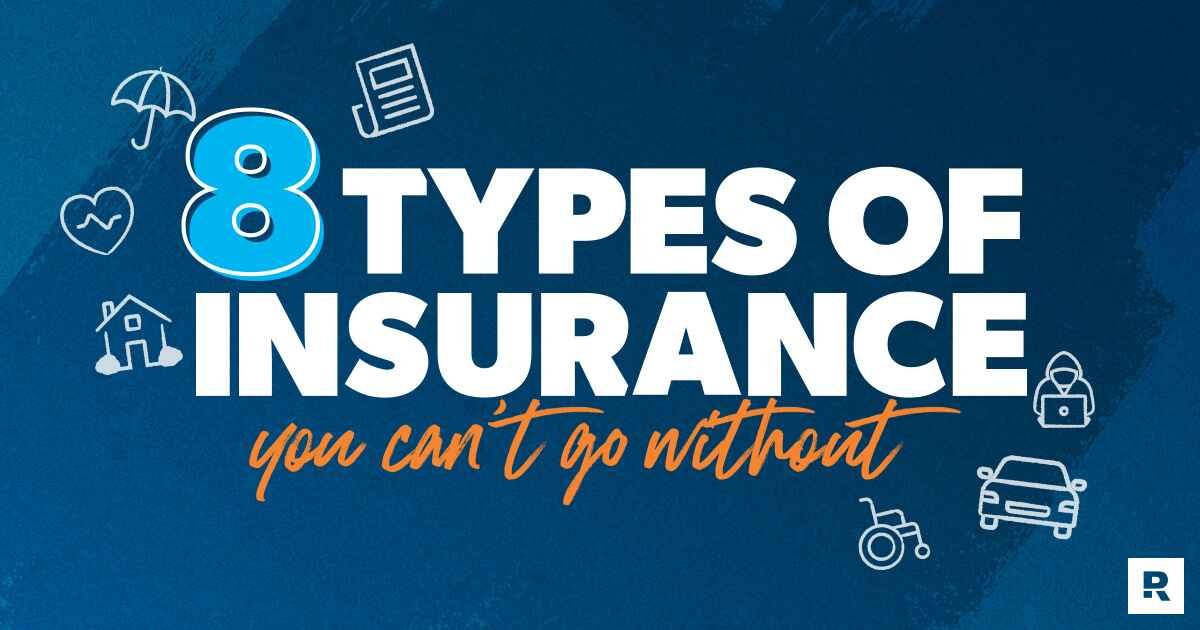In today’s unpredictable world, safeguarding your financial well-being is more important than ever. With the numerous risks and uncertainties that can impact your finances, it becomes crucial to have the right insurance coverage. From health insurance to protect your physical well-being to auto insurance for your vehicles, there are several types of insurance you need to consider. But how do you choose the right policies among the sea of options available? Don’t worry, I’ve got you covered. In this article, you’ll discover the essential types of insurance you need to protect your financial well-being and learn some valuable tips on selecting the right policies tailored to your needs. So let’s dive in and secure your peace of mind! When it comes to protecting your financial well-being, insurance is essential. It provides you with a safety net in case of unexpected events and helps mitigate potential financial losses. But with so many types of insurance available, it can be overwhelming to determine which policies are right for you. In this comprehensive article, we will explore the different types of insurance and help you understand how to choose the right policies for your needs.
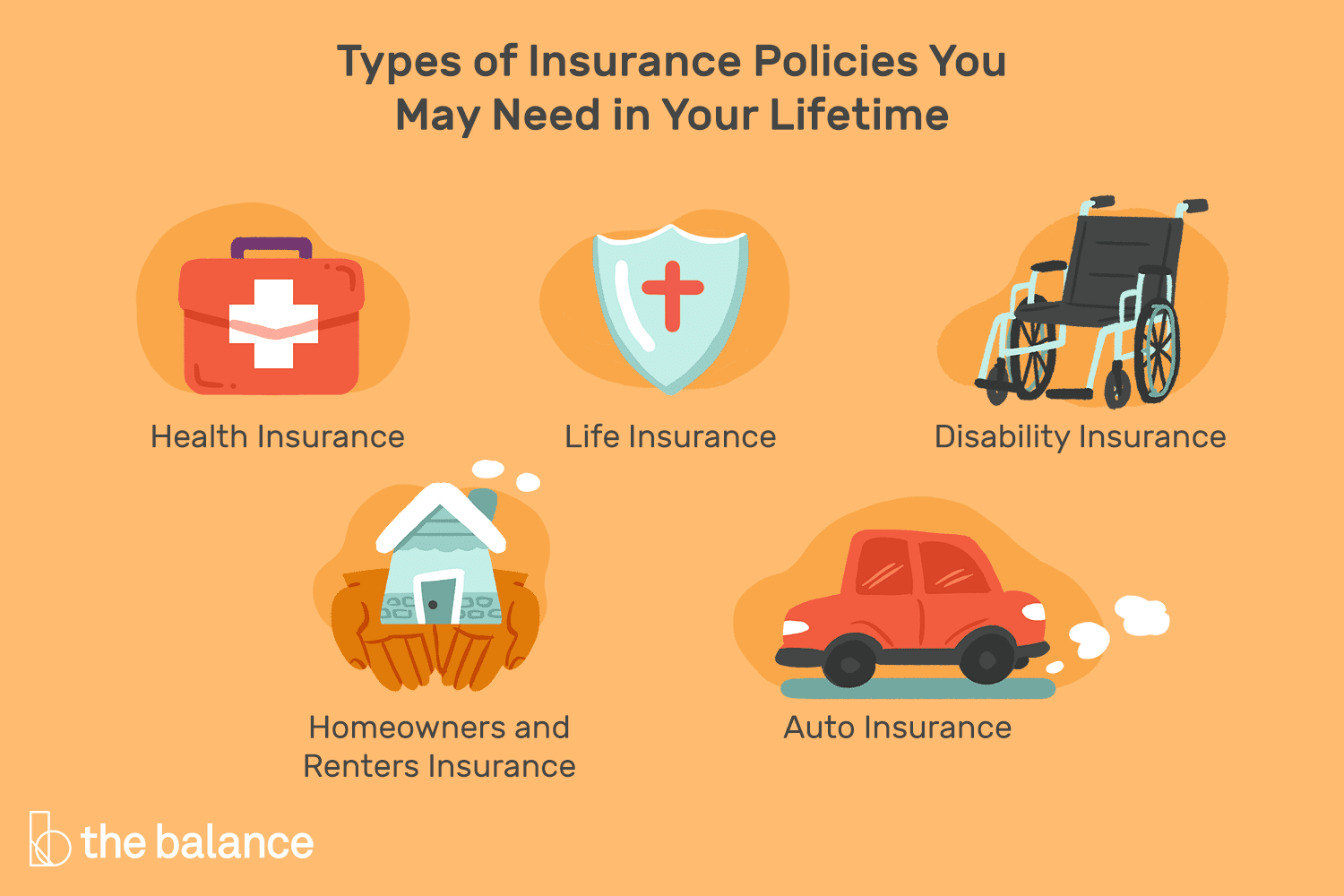
Life Insurance
Life insurance is an important consideration for anyone who has dependents or wants to ensure their loved ones are financially secure in the event of their passing. There are four main types of life insurance: term life insurance, whole life insurance, universal life insurance, and variable life insurance.
Term Life Insurance
Term life insurance provides coverage for a specific period, typically 10, 20, or 30 years. It offers a death benefit to your beneficiaries if you pass away during the policy term. Term life insurance is an affordable option for many individuals, especially those in their younger years or with temporary financial obligations, such as a mortgage or student loans.
Whole Life Insurance
Whole life insurance is a type of permanent life insurance that provides coverage for your entire life, as long as you continue paying premiums. In addition to the death benefit, whole life insurance also includes a cash value component that grows over time. This cash value can be borrowed against or withdrawn to help supplement retirement income or fund other financial needs.
Universal Life Insurance
Universal life insurance combines the benefits of permanent coverage with the flexibility to adjust your premiums and death benefit. With universal life insurance, you have the ability to build cash value, potentially earn interest on that value, and make changes to your policy as your financial situation or insurance needs change over time.
Variable Life Insurance
Variable life insurance offers both a death benefit and an investment component. Policyholders have the opportunity to invest their premiums into a variety of investment options, such as stocks or bonds. The cash value of variable life insurance fluctuates based on the performance of these investments. While variable life insurance can potentially provide higher returns, it also comes with greater market risks.
Health Insurance
Health insurance is crucial for covering medical expenses and ensuring access to quality healthcare. There are several types of health insurance policies, including employer-sponsored health insurance, individual health insurance, Medicare, and Medicaid.
Employer-Sponsored Health Insurance
Many employers offer health insurance plans to their employees, often covering a portion of the premiums. Employer-sponsored health insurance typically provides comprehensive coverage and may include benefits such as preventive care, prescription drugs, and hospital stays. It is important to carefully review the plan’s coverage, network of healthcare providers, and any out-of-pocket costs.
Individual Health Insurance
Individual health insurance is purchased directly by individuals or families from insurance providers. This type of insurance is suitable for those who are self-employed, not covered by an employer-sponsored plan, or have unique insurance needs. Individual health insurance policies can vary in coverage and cost, so it is essential to compare different options and choose a plan that meets your specific healthcare requirements.
Medicare
Medicare is a federal health insurance program primarily for individuals aged 65 and older. It also covers certain younger individuals with disabilities and those with end-stage renal disease. Medicare is divided into several parts: Part A (hospital insurance), Part B (medical insurance), Part C (Medicare Advantage plans), and Part D (prescription drug coverage). It is important to understand the different parts of Medicare and choose the coverage that best suits your healthcare needs.
Medicaid
Medicaid is a joint federal and state program that provides health coverage to low-income individuals and families. Eligibility criteria for Medicaid vary by state, but it generally includes individuals with limited income and resources. Medicaid covers a wide range of medical services and can be a lifeline for those who cannot afford private health insurance.
Disability Insurance
Disability insurance helps protect your income in the event that you become unable to work due to a disability or illness. There are three main types of disability insurance: short-term disability insurance, long-term disability insurance, and Social Security Disability Insurance (SSDI).
Short-Term Disability Insurance
Short-term disability insurance typically provides coverage for a short duration, such as three to six months, following a disabling event. It replaces a portion of your income during this period, allowing you to maintain your financial stability while recovering from a temporary disability.
Long-Term Disability Insurance
Long-term disability insurance provides coverage for an extended period if you are unable to work due to a disability. It typically kicks in after the expiration of short-term disability benefits. Long-term disability insurance ensures that you have income replacement for an extended time, protecting your financial well-being and providing peace of mind.
Social Security Disability Insurance
Social Security Disability Insurance (SSDI) is a federal program that provides income benefits to individuals who have a significant disability preventing them from working. To qualify for SSDI, you must meet specific criteria outlined by the Social Security Administration (SSA). While SSDI can provide financial support, the application process can be lengthy and complex, so it is advisable to seek professional assistance.
Auto Insurance
Auto insurance is a legal requirement in most states and helps protect you financially in case of accidents or damages to your vehicle. There are four primary types of auto insurance coverage: liability coverage, collision coverage, comprehensive coverage, and uninsured/underinsured motorist coverage.
Liability Coverage
Liability coverage is the most basic type of auto insurance and is required by law in most states. It protects you if you cause an accident and are held responsible for any injuries or property damage. Liability coverage typically includes both bodily injury liability and property damage liability, with set limits for each.
Collision Coverage
Collision coverage helps pay for repairs or replacement of your vehicle if it is damaged or destroyed in a collision, regardless of who is at fault. This coverage is especially important for newer or more valuable vehicles.
Comprehensive Coverage
Comprehensive coverage protects against damage to your vehicle that is not caused by a collision. This can include theft, vandalism, natural disasters, or hitting an animal. Comprehensive coverage is often required if you have a car loan or lease.
Uninsured/Underinsured Motorist Coverage
Uninsured/underinsured motorist coverage provides protection if you are involved in an accident with a driver who does not have insurance or carries inadequate coverage. It helps cover your medical expenses and property damage in such situations.
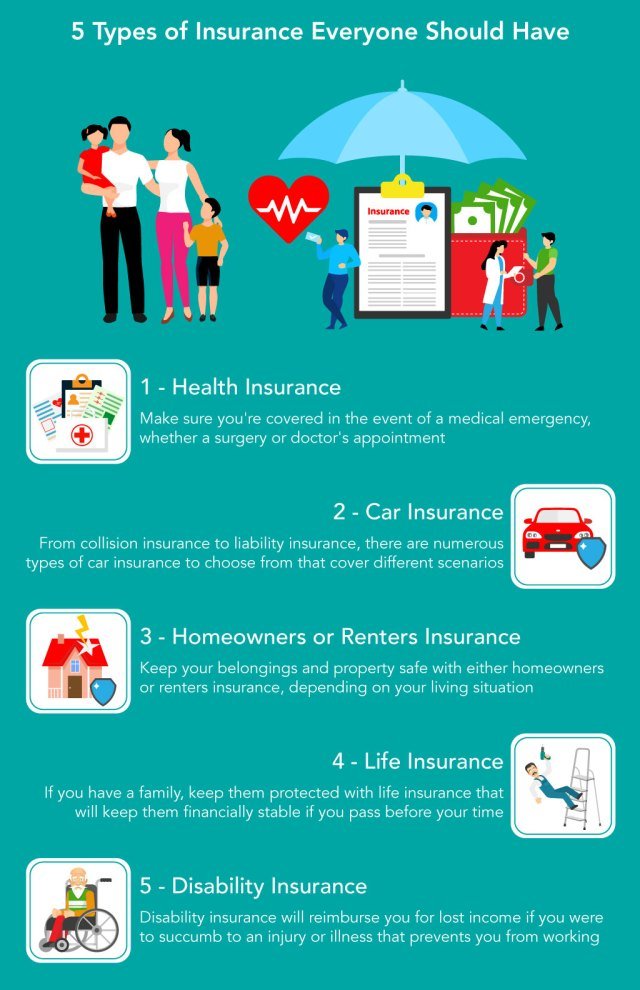
Homeowners/Renters Insurance
Homeowners and renters insurance policies provide coverage for your property and liability in case of unexpected events. Both types of insurance offer similar coverage but differ based on whether you own or rent your residence.
Dwelling Coverage
Dwelling coverage protects the physical structure of your home (for homeowners) or the property you rent (for renters). It provides financial support for repairs or rebuilding in the event of damage from covered perils such as fire, storms, or vandalism.
Personal Property Coverage
Personal property coverage protects your belongings within your home or rented property. It helps cover the cost of replacing or repairing items that are damaged or destroyed due to covered perils.
Liability Coverage
Liability coverage protects you financially if someone is injured on your property or if you accidentally cause damage to someone else’s property. It covers legal expenses, medical bills, and any damages awarded in a lawsuit.
Umbrella Insurance
Umbrella insurance is an additional layer of liability coverage that goes beyond the limits of your existing auto, homeowners, or renters insurance policies. It provides broader protection and higher coverage limits, giving you added peace of mind.
Supplemental Liability Coverage
Supplemental liability coverage extends the liability limits of your auto, homeowners, or renters insurance policies. It helps protect your assets and future income by providing additional coverage in the event of a large liability claim or lawsuit.
Excess Liability Coverage
Excess liability coverage provides additional liability limits beyond what is covered by your underlying insurance policies. It is designed to protect high-net-worth individuals or those with significant assets to ensure adequate protection in case of large liability claims.
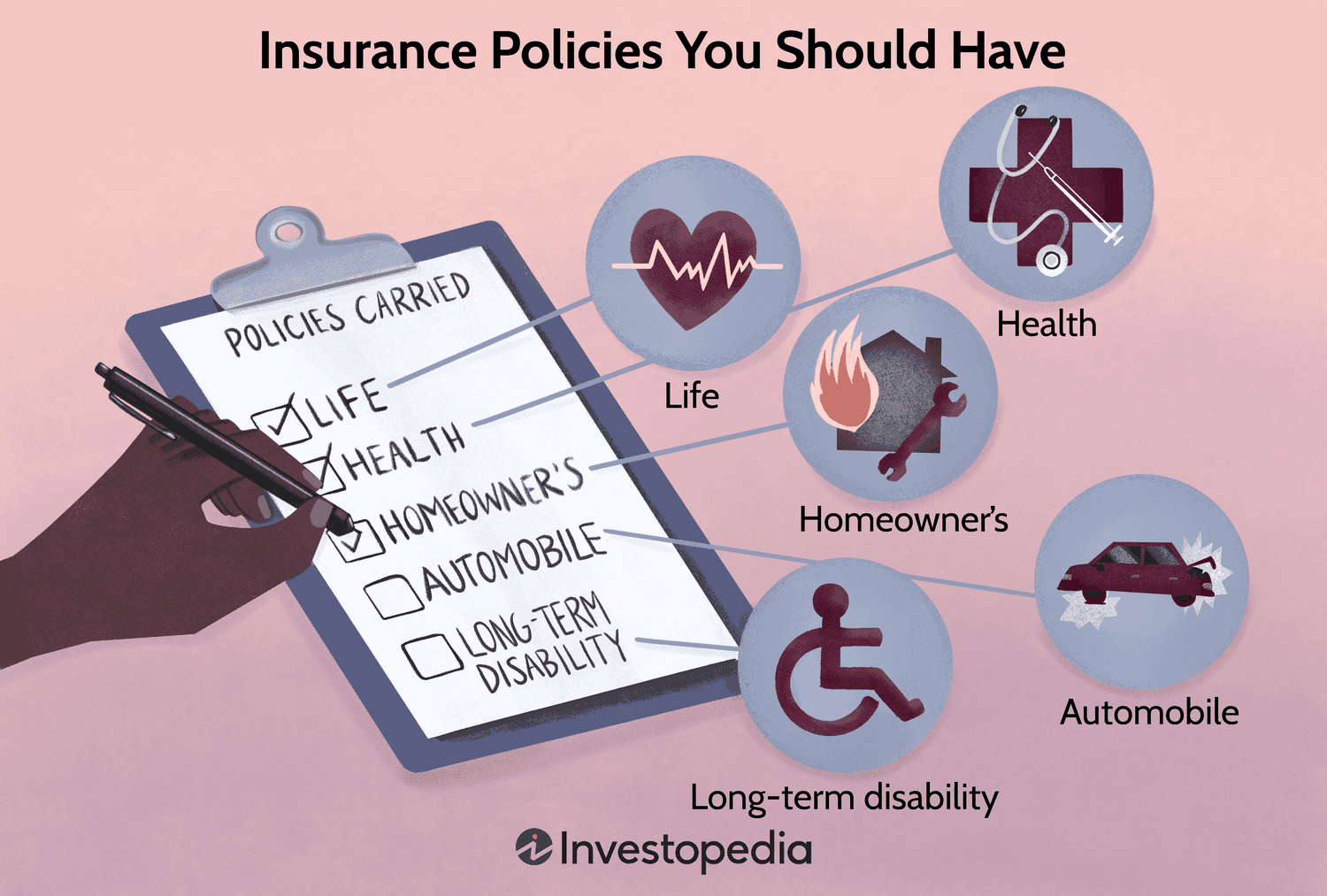
Long-Term Care Insurance
Long-term care insurance helps cover the costs associated with long-term care services, such as assistance with daily activities like bathing, dressing, or eating. It can provide financial support for care received in a variety of settings, including assisted living facilities, nursing homes, or at home.
Assisted Living Coverage
Assisted living coverage helps pay for the costs of living in an assisted living facility, where individuals receive assistance with daily activities but do not require 24-hour skilled nursing care.
Nursing Home Coverage
Nursing home coverage provides financial support for individuals who require 24-hour skilled nursing care in a nursing home facility. It helps cover the costs associated with medical care, rehabilitation services, and custodial care.
Home Healthcare Coverage
Home healthcare coverage helps cover the expenses of receiving long-term care services in the comfort of your own home. It can include services such as nursing care, physical therapy, or assistance with activities of daily living.
Identity Theft Insurance
Identity theft insurance provides assistance and coverage for expenses associated with identity theft. It can help restore your credit and cover expenses related to resolving fraud.
Credit Monitoring and Restoration Services
Credit monitoring and restoration services help detect any fraudulent activities related to your identity and provide assistance in resolving issues. They can help you monitor your credit reports, dispute inaccurate information, and restore your credit if it is compromised.
Fraud Expense Coverage
Fraud expense coverage provides financial reimbursement for expenses incurred due to identity theft, such as legal fees, lost wages, or the cost of reissuing important documents.
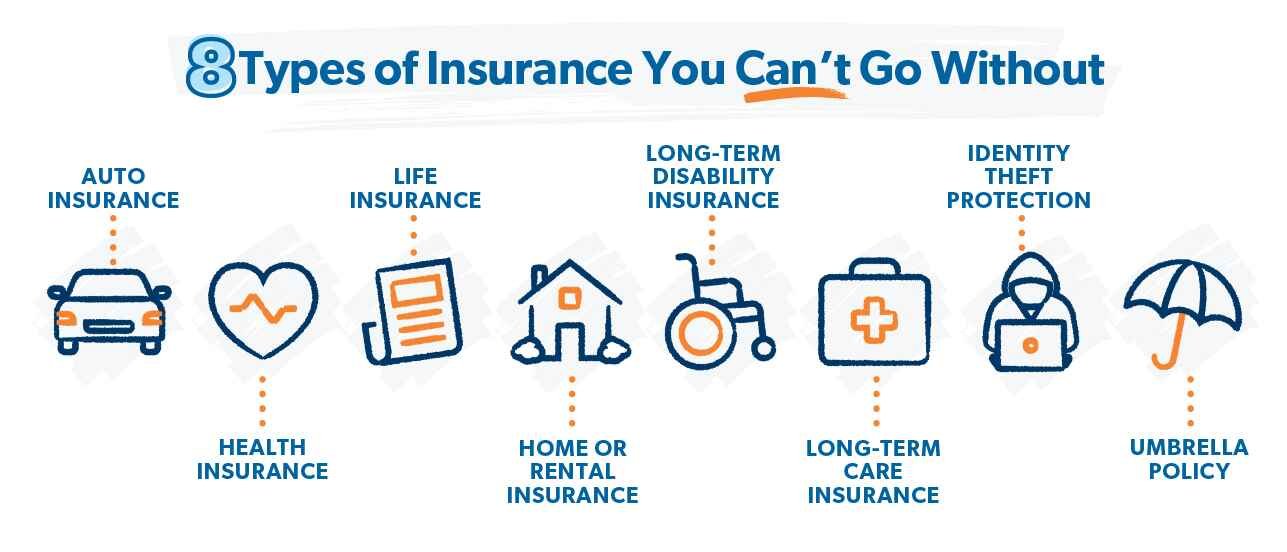
Business Insurance
Business insurance is essential for protecting your business from various risks and liabilities. There are several types of business insurance policies available, depending on the nature and size of your business.
General Liability Insurance
General liability insurance provides coverage for claims related to bodily injury, property damage, or personal and advertising injury. It helps protect your business from financial losses due to lawsuits or legal claims.
Professional Liability Insurance
Professional liability insurance, also known as errors and omissions insurance, is crucial for professionals who provide services or advice to clients. It helps cover the costs of claims if a client alleges negligence or errors in your services or advice.
Business Property Insurance
Business property insurance protects your physical assets, such as buildings, equipment, and inventory, from perils like fire, theft, or vandalism. It provides financial support for repairs, replacement, or rebuilding in case of covered events.
Travel Insurance
Travel insurance provides coverage for various risks and emergencies that can occur while traveling. It can help protect your financial investment in a trip and provide assistance during unexpected situations.
Trip Cancellation Insurance
Trip cancellation insurance provides reimbursement for prepaid, non-refundable travel expenses if your trip is canceled or interrupted due to covered reasons such as illness, injury, or natural disasters.
Travel Medical Insurance
Travel medical insurance covers medical expenses and emergency medical services while traveling abroad. It can include coverage for hospital stays, surgeries, prescription drugs, and medical evacuation.
Baggage Coverage
Baggage coverage provides reimbursement for lost, stolen, or damaged luggage or personal belongings during your trip. This can include compensation for essential items or the replacement cost of lost belongings.
When choosing the right insurance policies for your needs, it is essential to assess your specific risks, consider your financial situation, and prioritize your coverage requirements. Consult with insurance professionals, compare quotes from multiple providers, and carefully review policy details before making a decision. Remember, insurance is an investment in your financial well-being and provides valuable protection for you and your loved ones.
